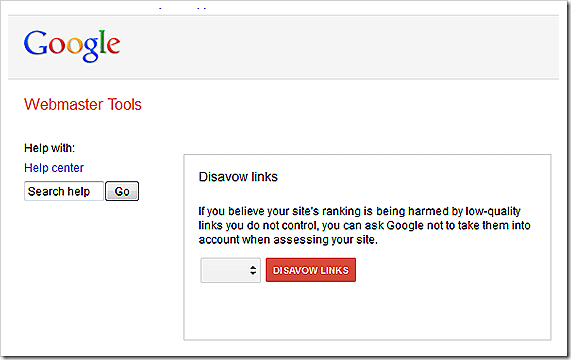
It is very difficult for internet traders to get higher ranks for their websites in the search engine results after the latest Google Penguin Updates. A lot of things have changed in the recent years. The Search Engine Optimization, Internet Marketing Strategies, PR has also changed a lot and things are becoming very difficult to handle. However, you can increase or improve the ranking of your site by following these tips to stay safe from Google Penguin Updates:
Tips to stay safe from Penguin Update & from other Google search ranking algorithm updates
Always focus mainly on the content
The content should be accurate, unique, new innovative and free from grammatical faults. The main thing is that you should keep updating your website with current updates. Google emphasizes mainly on the content. If you don’t update and change the content frequently, it will not have a good impact on Google.
Avoid excess filling of keywords. Do not have keyword density of more than 2%. Always proofread. Never go for hidden texts or link on you Blog. Avoid going for duplicate content. It would stop your site from becoming a scrapper site. Google also says do not go for affiliate marketing until you have good content.
Post Unique Content Regularly
The Google only requires you to post regularly to your blogs. Always be sure of posting unique, original and informative topics for your readers. It is well appreciated by Google. Do not think about backlink. If your content is accurate and useful, people will automatically start linking to your website and blogs. We call this natural links. We see that Google appreciates and awards natural links. You should not try to create links with white hat techniques. If your content is right, precise and unique, you need not worry about backlink.
Follow all the Google Terms and Policies
The most important of it would be to go through Google terms and polices. Follow the instructions of Google strictly and only do what Google says to stay good in its eyes. It allows you to progress and do decent work.
Stay Away from Malicious Content
Do not go for pages with malicious content. Malicious behavior could include phishing, downloading viruses, spyware, malware and other software which could harm the search engine as well as your traffic’s computer. Google penalizes these kinds of activities.
Stay away from automated SEO tools & building bad backlinks
Never make use of automated SEO tools in order to promote your website. Never ever go for web spam as Google will catch you sooner or later. As soon as Google catches your website, it will immediately block it. The backlink will be de indexed whether they are natural or self constructed. Harmful and inexpensive SEO services as they give you black hat search engine optimization. It leads to poor link building.
Topical Long-Form Content & Well Structured Websites help
You should focus on building topical landing pages with well researched long form of content with page sections (page menu). You should focus on topics and create content on topics and place related and relevant key phrases on pages as per the topic. Do not create multiple pages on similar topic and multiple keywords. This will create keyword cannibalism and duplicate content on your website.
Did You Feel the Penguin 3.0 Effect?

On Oct 17, 2014, Google announced that it has rolled out the Penguin 3.0 update. Immediately the online marketing industry went into a tizzy trying to figure out how their websites measured up against this new update. The problem with updating software is that the programmers are aware of what has been modified in the latest version but the people at large are unaware of it. They immediately start making fervent guesses to get to the core of it. In the process, the rumor mills begin to churn and throw up tons of misinformation. In this blog, we will take an honest look at what effect the Penguin 3.0 update had on the internet marketing industry.
Was Penguin 3.0 actually Small?
The updates of Google’s giant killers like the Penguin and the Panda are always very celebrated and much hyped. As a result, when the updates do not stack up well against the expectations, they are considered to be small and below par! That is exactly what has happened with Penguin 3.0, if you listen to the experts. This update was all the more hyped because it came after about an year. Every internet marketer was waiting for major upheavals on search algorithms and related domains.
What happened was almost an anti-climax! Pundits reports that with the Penguin 3.0 update, only 1% of US English queries were affected, as opposed to 3.1% when Penguin 1.0 rolled out. According to Pierre Far, the Penguin 3.0 was about ‘data refresh’ and not about algorithmic changes. Also, Penguin 3.0 was slated to be a slow, worldwide rollout. There is, of course, a logical explanation to why major updates are always rolled out over a longer period. Glitches and bugs can be fixed along the way.
Here are some salient features of the Penguin 3.0 update:
- Websites penalized by Penguin in the past were not revived through the update. Experts feel that Google is testing the waters with the update before taking any drastic step.
- In a desperate attempt to get into the good books of Google, many websites cleaned up their back-links. In their gusto, many of them threw the baby out with the bath water! In other words, some valuable back-links got trashed in the process.
- This was anything but a epoch-making event in the world of updates!
How you Lose to Penguin 3.0
The question that must always bubble under the surface after every Google update is: how do I end up losing this battle? The usual rules apply in the case of Penguin 3.0 update as well. Take a quick check on these points and find out how your website holds up in these departments:
- Duplicity in the purchase or sale of web links is a strict no-no. How many times have you heard that before? This rule still stands tall.
- Content farming and content churning, even if they have a semblance of quality, will take you to the loser’s corner! Articles, blogs or press releases cannot be your link-earning methods.
- Use of underhand means to trade in web links or content is still a grave offense. Play the game by the rules or get evicted from the arena is Google’s motto.
The Future Game Plan
Let’s look to the future now. What happens to websites and the internet marketing industry in this Penguin 3.0 times? I have heard so many people say that Penguin 3.0 is like hitting the refresh button rather than a full-fledged update as it seemed to be. The industry is looking to more such refresh buttons to be hit in the near future. The clamor is to get these updates to fight and nullify negative SEO. Some feel that this aspect was pretty much left alone in this update.
Penguin 3.0: What to Expect for your Websites

If the previous updates of Google under the moniker of Penguin have left you stirred, the latest one will leave you shaken! Google has readied the Penguin 3.0 update and it is getting into action sooner rather than later. The previous updates spelt doom for spam links and websites that used such links to boost their SEO division. Reading the signs, many webmasters have taken great pains in removing every single spam link that was part of the spam shadow. With the 3.0 update coming up, it is again a time for every webmaster to take a quick look in their backyard before moving forward.
The first question you have to ask yourself is whether the previous Penguin updates affected your website. How do you know the answer? You tally your web traffic to the dates when these updates rolled out in the past. Do you see a drop in traffic that corresponds to these dates? If the answer is yes, you have to worry about the Penguin 3.0 update! However, if the answer is no, you have no reason to celebrate! You still have to do a quick check to disavow or remove any spam link that connects to your website. This is the first step toward escaping the sword of Penguin 3.0.
In the case that your website is under the siege of Penguin, you have to do certain diagnostic and remedial measures. Perform a link audit report on your website. Pin down the links that are dubious or may have come from spurious sources. Pull the plug on them immediately. Failure to do so would mean that you have to wait for more than 10 months before you get another update from the Google stable. You cannot hope to survive in the wilderness for 10 months in an internet marketing industry without the power of Google.
Those websites that were not hit have to carry out precautionary measures, as mentioned above. Even for websites that have never indulged in any underhand means, a proactive audit on their link scheme is what SEO experts suggest. You certainly do not want to the webmaster crying their eyes out after Penguin 3.0 literally wipes out your online identity.
How to recover from Google Penguin Update
Google Disavow Tool – Good News for Penguin Affected Sites

Google disavow tool is launched for the betterment of the website links. The reason is that it is observed that sometimes the websites are loaded a ton of links which are not useful at all. So for this reason, this tool will deny all these links, so the internet can run in the fastest mode and clean. The main purpose of this tool is to delete the unwanted bad links and keep the internet free from the junkies. How to use Google disavow tool which totally depends on your website is performing with its bad link parameter. It is true that more bad links are not always brings the a pool of traffic to your website rather it may eat up your bandwidth as well. So the internet may get slow as well.
Actually, the disavow tool penalizes the bad links galore. So you are penalized for your website’s bad links. It is good for your website and the internet as well. When you got a proven attack about the bad link, then you should use this tool immediately. Otherwise you should not use it unnecessarily. It may jeopardize your website ranking as well. If you like to protect your website’s search ranking, then this tool will not help you to much. The reason is that Google has explained about it clearly yet. Actually, this tool is developed for those websites which are affected by the Google penguin update.
Moreover, it is primarily targeted the websites which are loaded with spam links. When you are dedicating for deleting the bad links from your website, then you could use it without affecting its ranking status on the search engine. Another point you should know that you could protect your website from the negative SEO which is very much dangerous for any website. Before using this tool, you have to first ascertain that which link is working as bad link and recognize it. Then you can apply this tool. But you should do it with very care.
If you like to get away from the anchor text penalties, then you can use this tool for your website. One thing is pretty sure that your website ‘s link problem is not to be solved by the the disavow tool alone, rather you have to use other methods to get your website in the right mode. Logically speaking, the disavow tool will act like a spam controller for your website. The reason is that it will control your website by denying the bad links.
So your website will get the higher ranking without losing its power due to the bad links. Moreover, the disavow tool will warn you about your website before it gets trapped with the bad links. Since, this tool is useful when your web site is plagued by the bad links and you have no time to do it. This tool will save you time and make your website clean. One thing you have to remember that if you install it not correctly, there will be a chance to mess up your website data as well.
Avoid Penalization by Shunning Black Hat Practices
Black hat SEO should be avoided for the benefit of the site in the long run. Anchor Text for Link Building: Having the exact keyword as your anchor text can be wrong.

There are numerous not so advisable ways to optimize your website on the search engines. Some of such ways are quite infamous too and often very susceptible to the algorithmic updates of Google. On one point probably all the webmasters will agree that Black hat SEO should be avoided for the benefit of the site in the long run.
Anchor Text for Link Building:
Having the exact keyword as your anchor text cannot earn you a good position in the search engine anymore. In fact, the Penguin update has landed many sites with anchor texts matching completely with their keywords. This kind of disrepute has made it very difficult for them to recover in the near future.
Low Quality Content Affects Link Building:
Mindless link building can harm your website in more possible ways than doing anything beneficial for it. Inbound links from sites with poor contents, unnecessary ads and often-low traffic influx despite having good quality content and ads can avert links from sites with high PR. Moreover, this link building procedure has its own limitations and it cannot work for long. In the long run, it is only going to hurt the search rankings of the site.
Overused Articles:
Article syndication is a very old and poor system of optimizing a website. This practice still works for short-term benefit of a website. However, it is never advisable for the long term stability of search rankings of a site. Article syndication allows one particular article to be submitted to multiple article submission sites, which in turn can only lower down credibility of its owner.
Sometimes, site owners prefer spinning multitude of different articles out of one piece of content. This procedure often ends up yielding write-ups with grammatical errors and poor quality of sentences. It is needless to say that any habit of this format has never done any good to any website.
All the above mentioned black hat SEO practices and several other like these cannot ensure sustained SERPs or higher search engine rank for a long term to websites. There is no point risking the position of your website’s rank for short-term benefit. Avoiding black hat practices also help you avoiding being penalized by Google.
Black Hat SEO: Why It Doesn’t Pay Off

Very few can resist something for free. This mantra is being used by advertising and marketing professionals for ages to sell products and services. Anytime they want to boost sales, they offer something for free! It is true in the SEO field as well. Except that the concept of ‘free’ here is in respect of time, not some product or service. SEO experts often claim to speed up the time it takes for a brand to gain traction on search engines. Brand owners cannot resist this ‘free’ bit, something that will gain them quick entry into where they want to be.
This is where they fall into a trap, albeit unknowingly. Most brand owners are not much aware of the dangers of black hat SEO, the negative side of optimization that takes the help of shortcuts and unscrupulous means to gain an unfair advantage. But this advantage is almost always a short-lived one. Before you can know or even count the benefits of this advantage, it is gone. It leaves behind a crater that is harder to fill that it was when you started on a level ground.
Black hat SEO takes routes that are banned by search engines, and deemed illegal in many countries. Some of the techniques employed by black hat SEO professionals include keyword stuffing and buying web links to improve their link building network. It is true that these means, among others, gain instant results in some areas. With more keywords stuffed in, you can get an advantage over your competitors. However, these techniques were more lethal even about 5 years back, not anymore.
Search engines like Google spend millions in building up algorithms and updates that combat the black hat SEO techniques. Sophisticated technology and tools can detect the use of black hat SEO techniques quicker than even before. What happens as a result is that your website is marked in the red zone. Repeated violations can get you penalties and a final goodbye from the search engines altogether! This is a very heavy price to pay for something that you could have achieved through better means, maybe in a longer time. But that would have got you steady results in the long run.
The only aspect that search engines care for is that you offer a good user experience through your website. That is the number one and the most important criteria of gaining and ruling SEO ranks. There are numerous white hat SEO techniques that you can use. Of course, it will require hard work on your behalf. And some patience to see this hard work take shape! If you try to cheat the system into gaining some more ground, you may end up slipping in a bad manner.
Do your keyword research, focus on your written content and optimize your website within the framework of best practices. That’s the only way to SEO nirvana.
How can you test if your website is affected by Penguin or not?

Penguin represents the latest change to Google’s search engine algorithm. While not as significant as last year’s Panda, it came with major implications that impacted quite a few sites. Was your website affected? Are you sure? Here are some ways you can find out and be absolutely positive.
Check Your Data
The first place you check for changes that may be associated with Google Penguin is your analytics software. We know that the update was officially rolled out on April 24, so you specifically want to track activity after this date. If Google Analytics is your tracking tool of choice, the Visitor Overview area is where you will likely find your answer. So for example, if this section tells you that your traffic went from an average of 400 to 500 visits per day before the update and 100 to 300 following, there is probably a good chance that you were a victim.
Monitor Backlinks
According to Google, Penguin was all about penalizing websites guilty of “over-optimizing”, and in the process, rewarding those following the company’s recommended SEO practices. One area it focused on was linking, so if some of your backlinks are connected to sites doing bad, you could suffer from their evil deeds. Luckily, there are a number of tools you can use to check up ln your backlinks, including Ahrefs’ Site Explorer. Not to be confused with Yahoo’s tool of the same name, the Ahrefs version of Site Explorer provides in-depth analysis of backlinks so you can really access the quality of your link building strategy. At the basic level, it shows you how many links you have, which of course, is the first step.
Look Into Impressions
In the world of advertising, impressions tell us how many times our ads were viewed by users. But they are not limited to advertising. Impressions also tell us how many times our pages were displayed in the search results. You can find out about search impressions by using a number of applications, but Google Webmaster Tools happens to be a free option that works pretty well.
With this one it’s pretty simple. If you notice that your website suffered a huge dip in impressions on or after April 24, you were probably one of the unlucky ones to be penalized by Penguin. Considering how they deal directly with search results, looking into impressions is arguably the most reliable way to tell if you were affected.
When it comes to search engine updates, the last thing you want to do is rush to judgement and start making radical changes under the assumption that your website has been hit. Before making any moves, you should gather the necessary data, and thoroughly analyze the information at hand. Acting too fast could cause you to make changes that are unwarranted and do more harm than good.
Related reading: How to avoid Google Penalties
Google Penguin-proof SEO Techniques
Learn what is Google Penguin update and get accustomed with Google Penguin SEO techniques. Penguin or Google web spam search algorithm update took place on 24th April 2012.

The world of Google is full of surprises. New updates and changes are made often and then. Therefore, webmasters and bloggers should stay updated to maintain their position at the top. Well, the latest sensation among the internet marketers is Google Penguin. Yes, the Google Penguin has arrived with all new strategies and if you fail to cope up with its demands, your website rank can definitely dropdown.
Need help? Then, look up here to know what “Penguin update”, the webspam algorithm has in its bag.
Primary focus
The main focus of the Penguin algorithm is to offer right exposure to the websites or blogs that has set apart its own uniqueness with extreme professional contents.
The checklist to follow for securing a better position on the Google.
Avoid using fake or strange tactics
May be you are blessed with wicked intelligence, by using which you have maintained your position on Google top list till date, but Penguin will not allow you to do the same anymore. “Black hat SEO” is definitely not allowed if you want to make your webpage visible at the top list. So, stop using hidden keywords, descriptions, cloaking, text stuffing and doorway pages in a massive rate, because these are not going to be of any use.
So, it is better if you switch to White Hat Search Engine optimization now to maintain a better visibility of your web pages.
“Content is king”
Google always focuses upon the quality and uniqueness of the contents more than anything else. So, start concentrating upon it to ensure better visibility of your web pages.
- Create contents that reflect fresh ideas and information.
- Make sure that the quality of the content is standard, so that the viewers of all age can read it and make a sense of it.
- Stop stuffing keywords unnecessarily, because from now onwards Google is not going to give priority to the contents, which are stuffed with linked keywords.
Stop believing upon “You link me and I will link you”
It was a popular SEO technique once upon a time, but now Google is stressing upon natural link building.
Since, Penguin is really very new, facing troubles is obvious. However, the survival of your web pages at the top list is really very important to ensure your profits.
How to cope up with Google Search Ranking Algorithm Updates
Read more about tips to benefit from Google Panda updates & penguin updates, backlink audit tips and how to analyze your backlinks.








Google Penguin updates is to deal with Spam links. People who do lots of back links from same anchor text also affected. I personally feel that SEO links should look natural but artificial. When ever you comment, review it should be natural. Also there is no necessary to create huge back links. Small amount of links are sufficient but the on-page should be the most important thing. I have done it and has practical results.
Thanks Sadhak for your comment. Yes agreed, we should build high quality relevant backlinks with diversified natural anchor texts. And this should be an ongoing activity. Slow but steadily earning links by quality content is the key.
Thanks for the insight. I guess I am lucky in only having one site to change/adapt.
Thanks Rob for your comment
Panda hit some of my websites but this penguin update really killed most of my well-established ones.. I never expected it to happen in such a quick rate but I am slowly recovering my lost rankings now. It’s hard to put all your eggs in Google’s basket
Sorry to hear Michelle. Please read this article here https://www.7boats.com/tips-to-benefit-from-google-panda-updates-penguin-updates/ and apply the tips. Hope you recover your lost rankings.
This tool is both useful and complicated to use at the same time…
:) Thanks Naser for your comment. It’s very useful tool but yes you have to carefully check your backlinks before you disavow. Also there are a few paid tools for link detox where they will show you the spam score of those domains and OBL (Outbound link) score that can help you to isolate bad backlinks faster.
i never think about this black hat SEO but this blog is quite good for me. it really helped me a lot.
Thank you
Google Penguin algorithm updates aim to decrease search engine rankings of the websites that use forbidden link building techniques. Thank you for help me out
Thank you Sovan. Yes definitely bad link building techniques trigger Google Penguin Penalty.
Top 3 guidelines to avoid a Google penalty:
1. Don’t buy links. Links passing SEO value to your site should look natural.
2. Don’t overuse keywords.
3. Make original, quality content.
Google Penguin link clean up process:
1. Remove your bad link first.
2. Disavow by disavow tools.
3. Use reconsideration request in Webmaster Tools or Search Console only if you received a manual penalty notice.
4. If you were hit by Penguin – wait for the next Penguin update.
5. If you were hit by a manual penalty then you could regain rankings in days, weeks or months after reconsideration request.